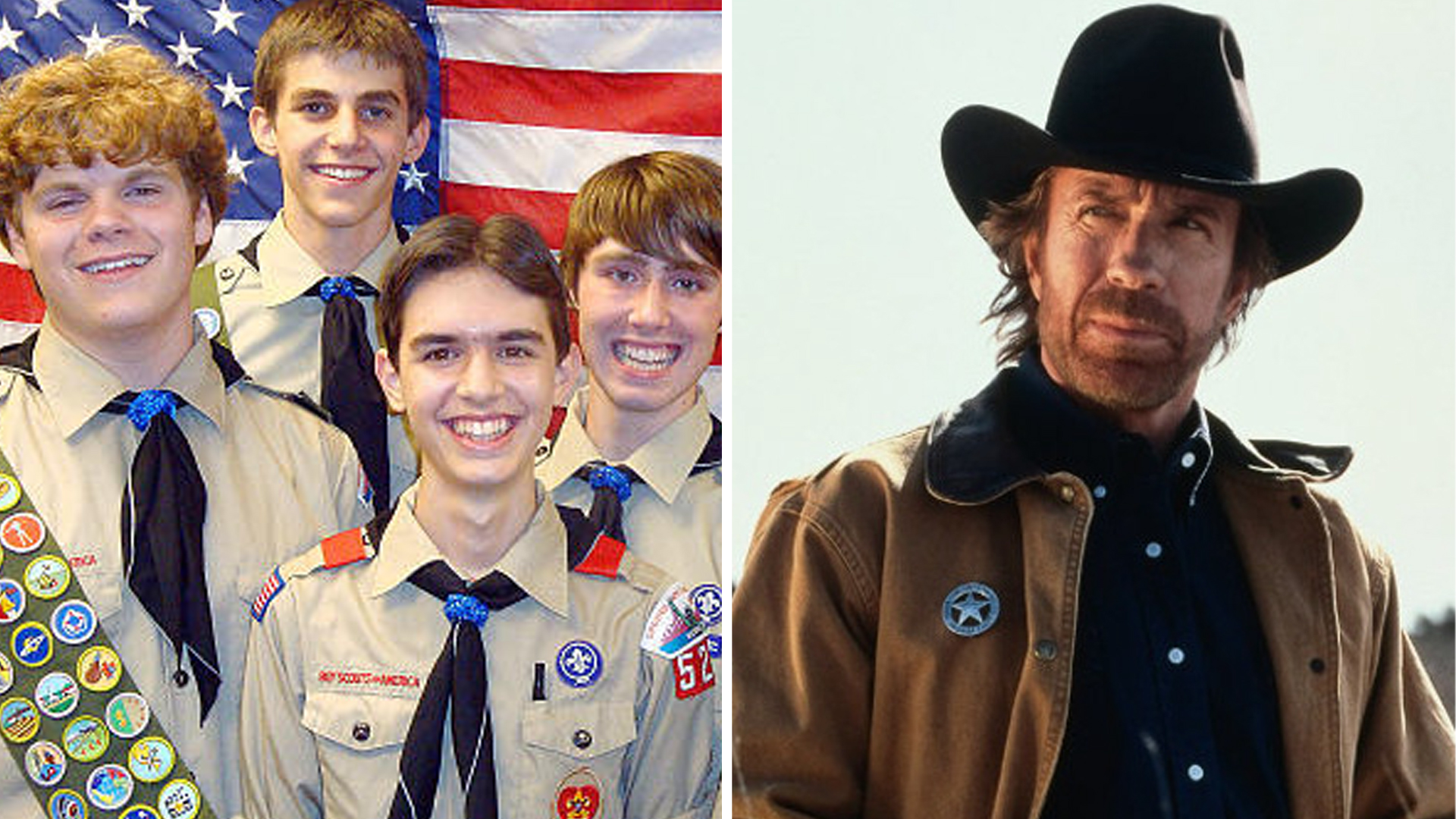Chuck Norris, the legendary martial artist, actor, and cultural icon, has announced his resignation from his role as Honorary Scout Master of the Boy Scouts of America. This decision comes in the wake of the organization’s rebranding to Scouting America, a change aimed at reflecting its new inclusive policies. Norris, known for his tough-guy persona and staunch conservative values, cited the organization’s departure from its traditional values as his primary reason for stepping down, claiming, “They’ve lost their way.”
The Boy Scouts of America has been a venerable institution since its founding in 1910, playing a pivotal role in shaping the character and values of millions of young men. However, in recent years, the organization has faced declining membership and increasing pressure to modernize. The decision to rebrand as Scouting America, effective February 8, 2025, represents a significant shift in the organization’s approach, as it now openly welcomes girls and LGBTQ scouts.

For many, the name change and new policies represent a necessary step toward inclusivity and equality. For others, like Chuck Norris, it marks a significant departure from the organization’s core mission. In his resignation statement, Norris was clear and direct about his concerns.
“I have always been proud to be associated with the Boy Scouts of America, an organization that has stood for strong moral values and the development of young men into responsible, capable leaders,” Norris stated. “However, with the recent changes and the decision to rename the organization Scouting America, I believe they have lost their way. I cannot, in good conscience, continue to support an organization that no longer aligns with the principles it was founded on.”
Norris’s resignation has sparked a heated debate within the scouting community and beyond. Supporters of Norris argue that the Boy Scouts have indeed strayed too far from their original mission. They believe that the inclusion of girls and LGBTQ members undermines the organization’s focus on developing young men. To them, Norris’s departure is a principled stand against what they see as the dilution of the organization’s core values.

On the other hand, proponents of the rebranding and new policies argue that the Boy Scouts must evolve to remain relevant in today’s society. They assert that inclusivity does not detract from the organization’s mission but rather enhances it by embracing diversity and promoting equality.
“We understand that change can be challenging, especially for those who have been part of this organization for many years,” said a spokesperson for Scouting America. “However, we firmly believe that these changes are necessary to ensure that our organization remains a positive force in the lives of all young people. Scouting is about teaching valuable life skills, fostering a sense of community, and helping young people become responsible, ethical leaders. These values are universal and inclusive, and we are committed to making Scouting America a place where everyone can thrive.”
The debate over the Boy Scouts’ name change and Norris’s resignation highlights a broader cultural clash between traditional values and progressive ideals. It raises important questions about how institutions with deep historical roots can adapt to changing social norms without losing their essence.
Chuck Norris’s departure as Honorary Scout Master is particularly significant given his iconic status in American culture. Known for his roles in action films and the popular TV series “Walker, Texas Ranger,” Norris has become a symbol of rugged masculinity and conservative values. His endorsement of the Boy Scouts lent a certain cachet to the organization, and his resignation is likely to have a ripple effect.
In his statement, Norris emphasized that his decision was not made lightly. “I have tremendous respect for the history and legacy of the Boy Scouts of America,” he said. “But I cannot ignore the fact that the organization’s recent actions are in direct conflict with the values I hold dear. I hope that my resignation will serve as a wake – up call to the leadership of Scouting America and prompt them to reconsider their direction.”
Despite the controversy, Scouting America is moving forward with its plans to implement the name change and continue its mission of inclusivity. The organization has launched a comprehensive rebranding campaign aimed at highlighting the positive impact of its new policies and reassuring current members and supporters that the core values of scouting remain intact.
“We are excited about the future of Scouting America,” the spokesperson said. “We believe that our commitment to inclusivity will make us stronger and more relevant than ever before. We are confident that, in time, even those who are skeptical of these changes will see the positive impact they have on our organization and the young people we serve.”
As the dust settles from Chuck Norris’s resignation, it is clear that the Boy Scouts’ journey to becoming Scouting America will not be without its challenges. However, it is also evident that the organization is determined to navigate these challenges with a focus on inclusivity and equality. Whether this new direction will ultimately strengthen or weaken the organization remains to be seen, but one thing is certain: the Boy Scouts of America, now Scouting America, is embarking on a new chapter in its long and storied history.
In conclusion, Chuck Norris’s resignation as Honorary Scout Master over the name change to Scouting America and the organization’s inclusive policies underscores the deep cultural and ideological divides that exist in American society today. It serves as a reminder that change, while often necessary, is rarely easy and is always met with resistance. As Scouting America moves forward, it will need to balance its commitment to inclusivity with its respect for tradition, striving to create an environment where all young people can learn, grow, and thrive.

